Creating a professional and concise letter for media talent contract offers is crucial in making a great first impression. It sets the tone for the future working relationship and clearly outlines the essential details of the contract. In this article, we'll share a customizable template and tips to ensure your communication is both effective and engaging. So, let's dive in and explore the best practices for crafting your media talent contract offers!

Talent's full name and contact information
The media talent contract includes essential details such as the talent's full name, representing their legal identity, and contact information, which typically includes phone number, email address, and mailing address. This information ensures smooth communication between the talent and the media agency or production company. Properly documenting these details fosters professional relationships and aids in contract management for future engagements. Accurate contact information is critical for scheduling auditions, meetings, and tracking project updates, thereby facilitating effective collaboration in the fast-paced media industry.
Contract start and end dates
Media talent contracts typically outline specific start and end dates for the engagement period. The start date marks the official beginning of the agreement, ensuring both parties are aware of when obligations commence. This date can vary significantly based on project needs, with many productions in the film and television industry commencing during pre-production phases or at specific calendar times for promotional events. The end date signifies the conclusion of the contract, often aligned with the completion of projects, evaluations, and any associated promotional activities. Clear delineation of these dates aids in managing expectations and planning, allowing for seamless transitions in talent availability and project timelines in a fast-paced industry.
Detailed scope of work and role description
The media talent contract outlines specific duties and responsibilities, including on-camera appearances for promotional campaigns, participation in live events, and contribution to social media content creation. Key roles may involve script reading, collaborating with directors and producers, and engaging in training sessions to refine skills related to public speaking and audience interaction. Talent may also provide commentary on brand strategies or represent the company at various industry conferences. Additionally, expectations surrounding content deliverables such as video edits, scheduled postings, and audience engagement metrics will be detailed, ensuring alignment with the overall marketing objectives of the brand. Each task is critical for enhancing the brand's visibility and influence in competitive media spaces.
Compensation and payment terms
In media talent contracts, compensation structures often include a base salary along with additional performance-based bonuses. Payment terms typically outline a bi-weekly or monthly payment schedule, specifying the due date for payments, which may occur on the first and fifteenth of each month. Contracts may also define bonuses linked to audience ratings, social media engagement, or event attendance, offering lucrative incentives based on performance metrics. Furthermore, clauses regarding reimbursement for travel expenses, including airfare and accommodation for shoots or promotional events, are essential for a comprehensive agreement, ensuring that talents are fairly compensated for their work-related costs incurred during business activities. Clear delineation of payment methods--such as direct deposit or checks--is crucial to avoid any ambiguity in compensation processes.
Confidentiality and exclusivity clauses
Media talent contracts often include critical confidentiality and exclusivity clauses. Confidentiality clauses ensure that sensitive information, such as proprietary scripts, production details, and marketing strategies, remains undisclosed to third parties; breaches can lead to legal consequences. Exclusivity clauses often restrict talents from working with competing entities within a specified timeframe or geography, such as a city or industry sector, typically lasting 12 to 24 months post-contract. These provisions protect the brand's identity and intellectual property while providing assurance of the talent's commitment to the project, allowing for focused promotional efforts and a coherent public image throughout the campaign. Legal repercussions can ensue if these terms are violated, protecting both the talent and the production company.

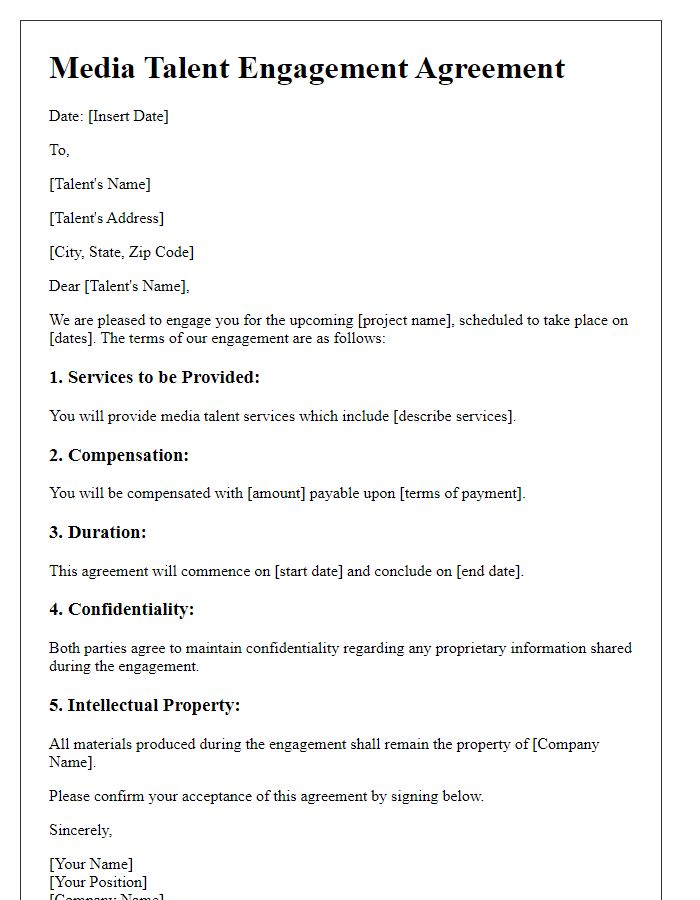
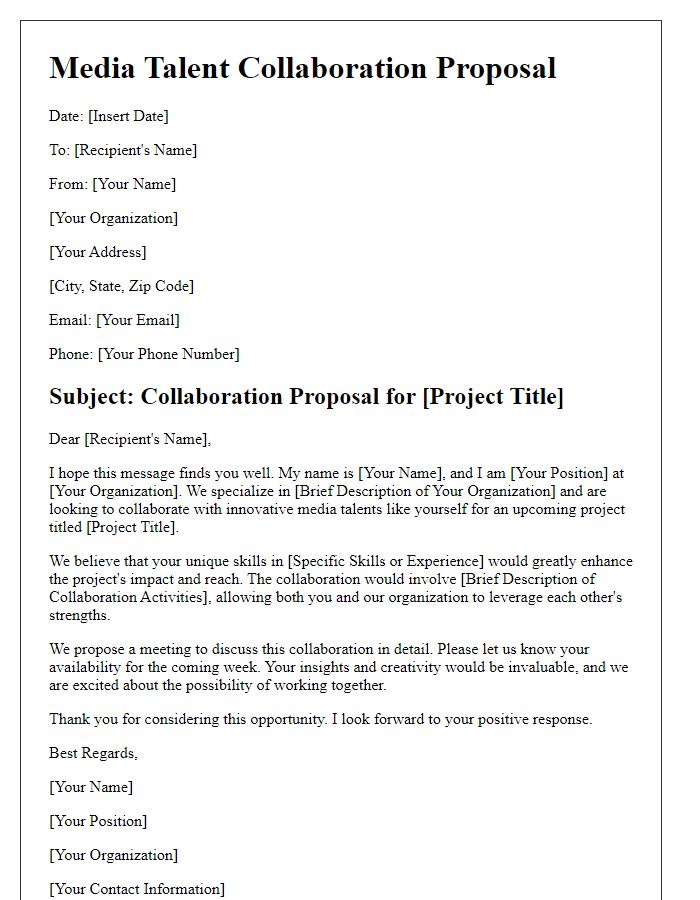
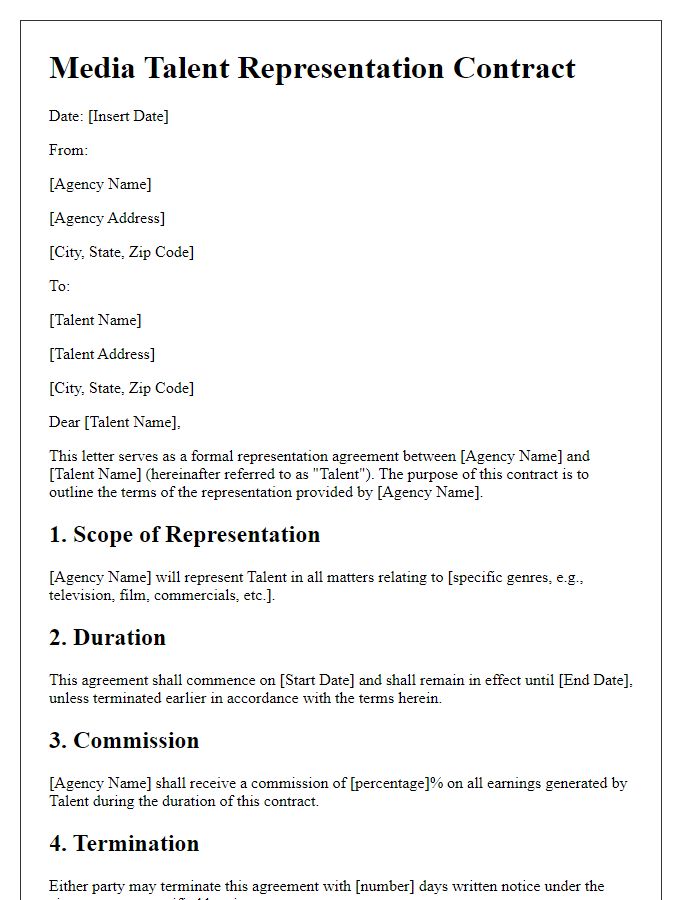
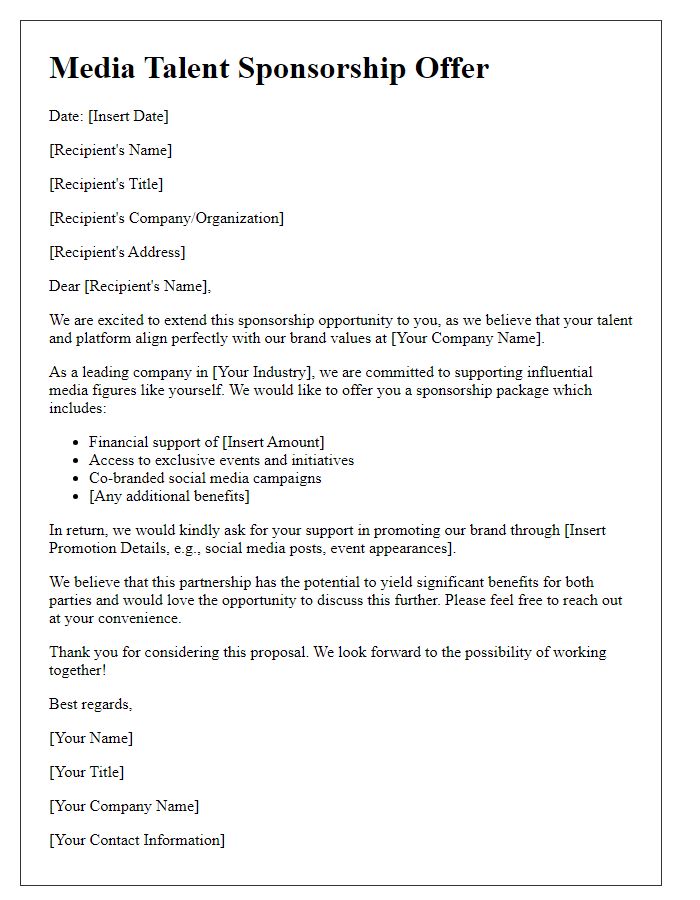
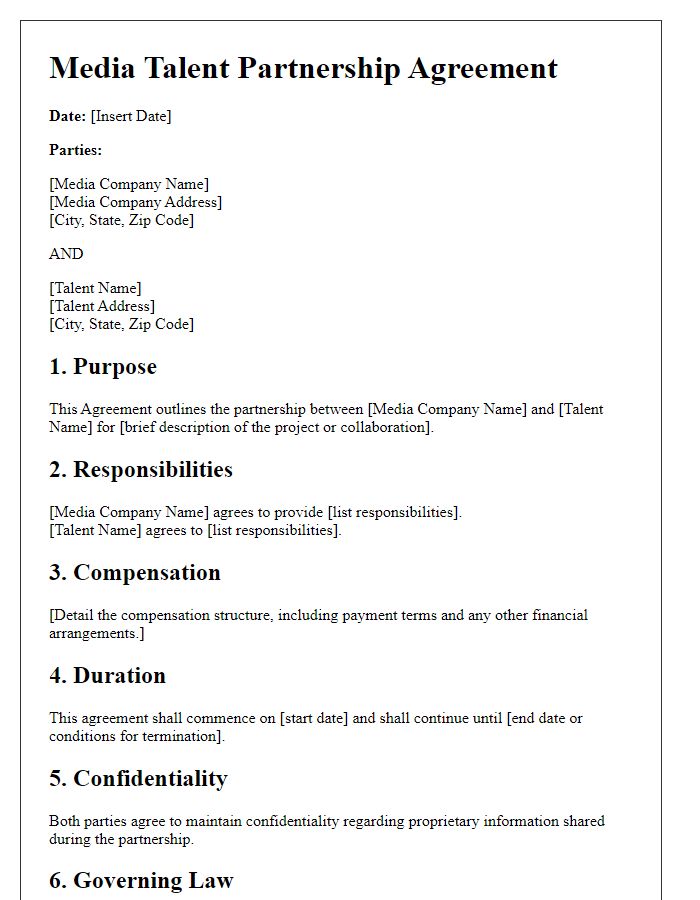
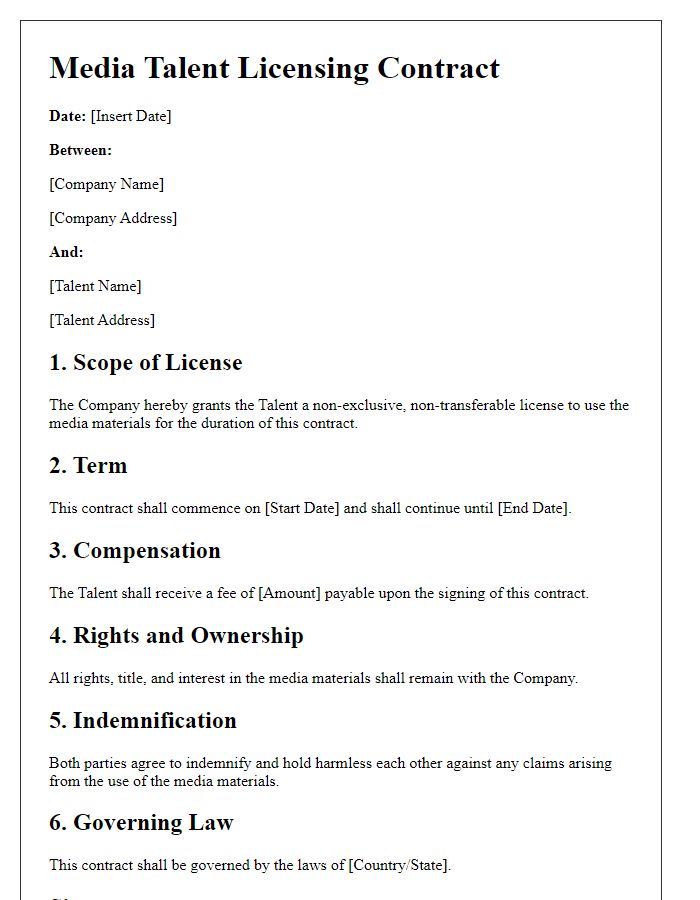
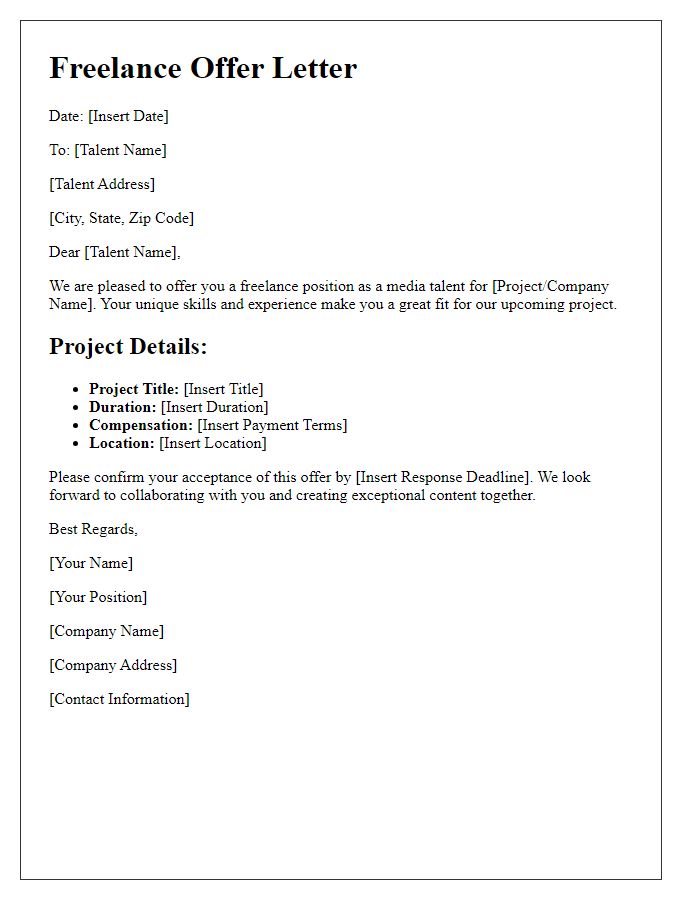
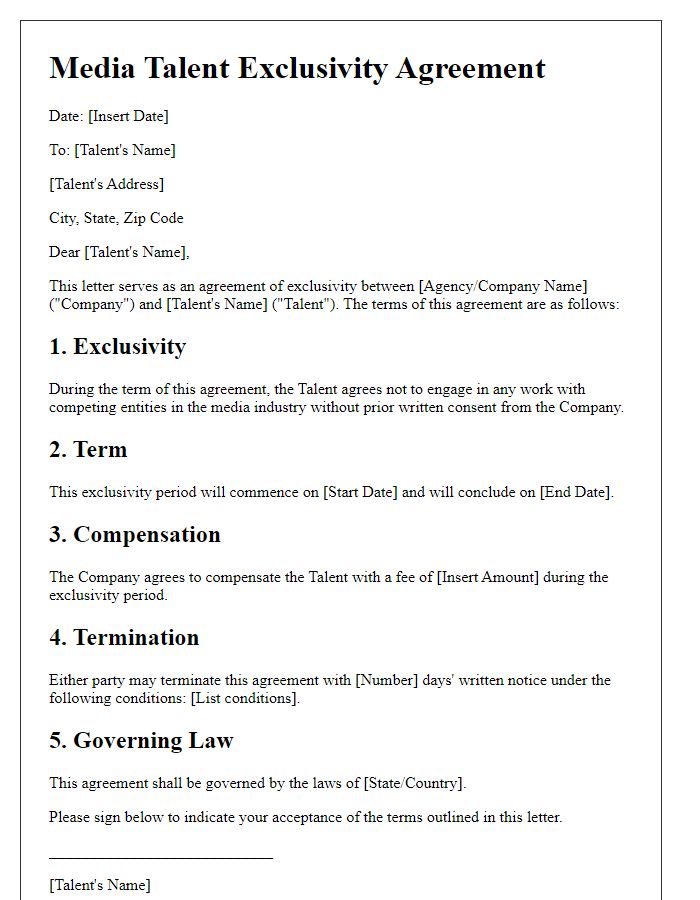
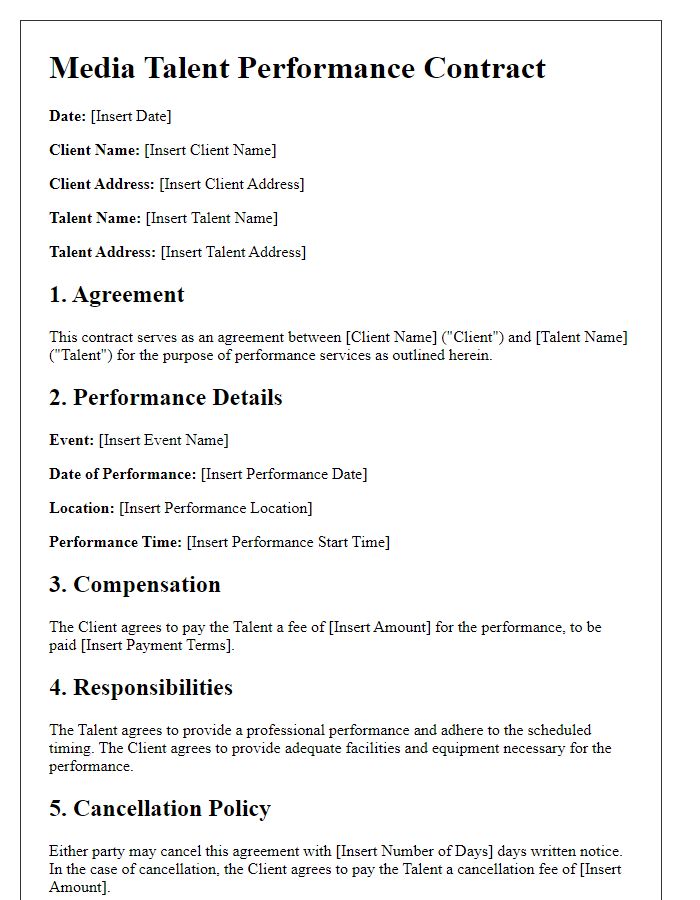
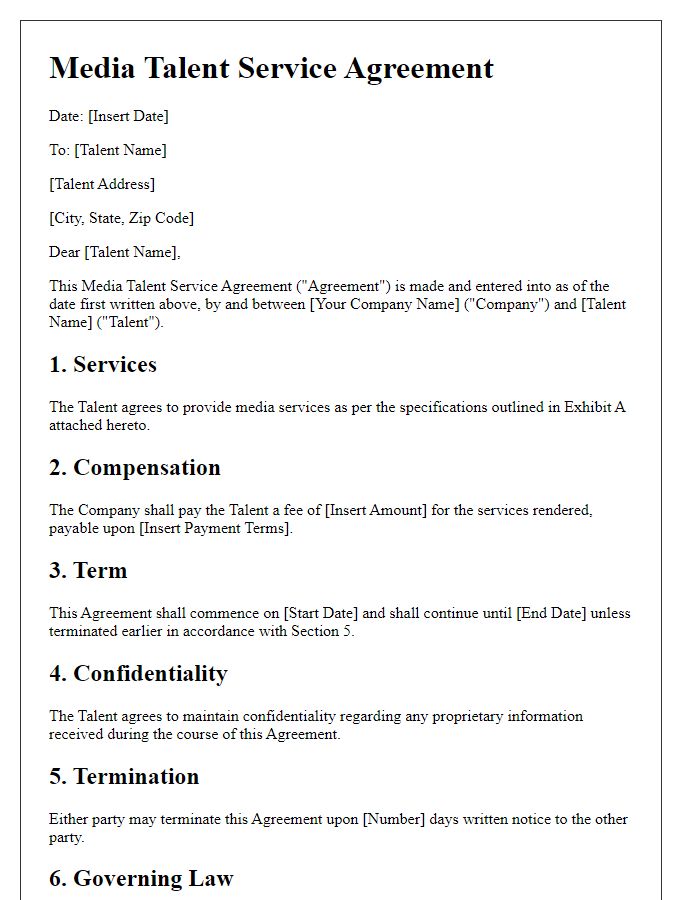


Comments